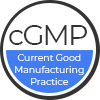
Many Americans are experiencing higher levels of sleep-related problems (sleep latency and sleep disturbance) in recent years according to the American Psychological Association Stress in America Survey.¹ With that being said, within the US, it is reported that as many as 70 million adults have a sleep disorder.
Furthermore, these high levels of sleep-related problems negatively impact the health and function of the neurotransmitters of the brain. Proper activity from the neurotransmitters dopamine, acetylcholine, serotonin, and norepinephrine is essential for cognition, memory, stabilizing mood, and sleep patterns.² As the natural production of these key neurotransmitters declines, the result perpetuates sleep problems, including falling asleep and staying asleep.
Sleep helps with the replenishment of brain energy, detoxification, restoration of function, and brain connectivity/plasticity. Sleep also acts as a host-defense mechanism, strengthening the relationship between sleep and the immune system.³
Despite the reality that many of us deal with high levels of sleep issues on a regular basis, there are simple strategies and remedies that can help with effective management of these common issues.
L-Theanine:
The amino acid L-Theanine is present in several plants, including mushrooms like Boletus badius. It is synthesized in the roots of plants, but it concentrates in the leaves. L-Theanine enhances the production of the neurotransmitters dopamine and serotonin, which are specifically involved with sleeping patterns.
Because serotonin converts to melatonin in the pineal gland in your brain, as serotonin levels are improved, melatonin levels also increase, which in turn supports restful sleep.
Furthermore, L-Theanine elevates levels of GABA, a neurotransmitter that inhibits certain brain signals and decreases activity in your nervous system. When GABA attaches to a protein in your brain known as a GABA receptor, it produces a calming effect.
Following a four week clinical trial of L-Theanine supplementation, there was a significant reduction in sleep quality problems. Administration of L-Theanine also improved verbal fluency, especially letter fluency, among individuals who showed relatively low performance at pretreatment.⁴
Melatonin and Vitamin B6
A pilot study suggested that melatonin, an endogenous hormone produced by the pineal gland and released exclusively at night, in conjunction with vitamin B6, may be beneficial in mild-to moderate insomnia.⁵ With this being said, Vitamin B6 deficiency is commonly linked to sleep related issues.
Exogenous melatonin supplementation has been shown to synchronize the circadian rhythms. Exogenous melatonin also improves the onset, duration, and quality of sleep.⁶
GABA and Inhibitory Neurotransmitters
Inhibitory neurotransmitters have inhibitory effects on the neuron, decreasing the chances of the targeted cell to take action. Commonly, inhibitory neurotransmitters have a relaxation-like effect. Some of the major inhibitory neurotransmitters include serotonin and gamma aminobutyric acid (GABA).
Low levels of inhibitory neurotransmitters can lead to sleep disturbances.⁷ As the brain’s main inhibitory neurotransmitter, GABA blocks certain brain signals and decreases activity in your nervous system. As GABA attaches to a protein in your brain known as a GABA receptor, it produces a calming effect, which keeps the brain from becoming overactive.⁸ As a result, GABA is often prescribed for sleep.⁹
SAMe and the Production of Serotonin and Melatonin
SAMe, also known as S-adenosylmethionine, may also combat the struggle of sleeplessness. First, SAMe helps in the creation of serotonin, which in turn is necessary for a healthy mood, and is converted by the body into melatonin. SAMe ensures your body has enough to not only produce the precursor serotonin, but also stimulate the natural production of melatonin.¹º
Gut Bacteria Impacts Sleeping Patterns
Research has demonstrated that sleep has a significant impact on the gut microbiome and cognitive health.¹¹ Furthermore, sleep disorders and disruptions are also known to negatively impact the gut microbiota. https://pubmed.ncbi.nlm.nih.gov/24251697/
The microbiota, or bacteria in the gut can produce the specific neurotransmitters GABA, dopamine, and serotonin. In fact, it is estimated that 90% of serotonin is located in the gut. These critical neurotransmitters stimulate the neurons of the enteric nervous system to communicate back to the brain.¹²
Also in the gut, tryptophan is converted to melatonin, which helps to regulate the sleep-wake cycle. This conversion process is contingent upon the health of the gut microbiome. The health of the gut is directly correlated to healthy sleep patterns.
Conclusion
Given the common sleep related issues, not only within the United States alone, but on a global scale, rest assured there are simple and effective alternative remedies to consider. Dietary supplementation of specific herbal combinations, botanicals, and micronutrients show promising results. L-Theanine, melatonin, vitamin B6, GABA, SAMe, Sulbutiamine, and a healthy gut microbiome are some of the key ways to establish healthy sleeping patterns and proper neurological neurotransmitter balance.
Resources
- https://www.apa.org/news/press/releases/stress/2020/report
- https://www.medicalnewstoday.com/articles/319185
- https://www.annualreviews.org/doi/10.1146/annurev-psych-010213-115205
- https://pubmed.ncbi.nlm.nih.gov/31758194/
- https://www.sciencedirect.com/science/article/abs/pii/S0965229919303711
- https://pubmed.ncbi.nlm.nih.gov/28460563/
- https://www.nhnatural.com/images/Sleep-NHNHC.pdf
- https://www.healthline.com/health/gamma-aminobutyric-acid
- https://daveasprey.com/gaba-neurotransmitter-supplement-anxiety-sleep/#:~:text=GABA%3A%20The%20Neurotransmitter%20That%20Dissolves%20Anxiety%20and%20Improves,to%20increase%20GABA%20levels%20in%20your%20brain.%20
- https://www.ncbi.nlm.nih.gov/pmc/articles/PMC5501081/
- http://paperpile.com/b/hXIoyM/orSVW







